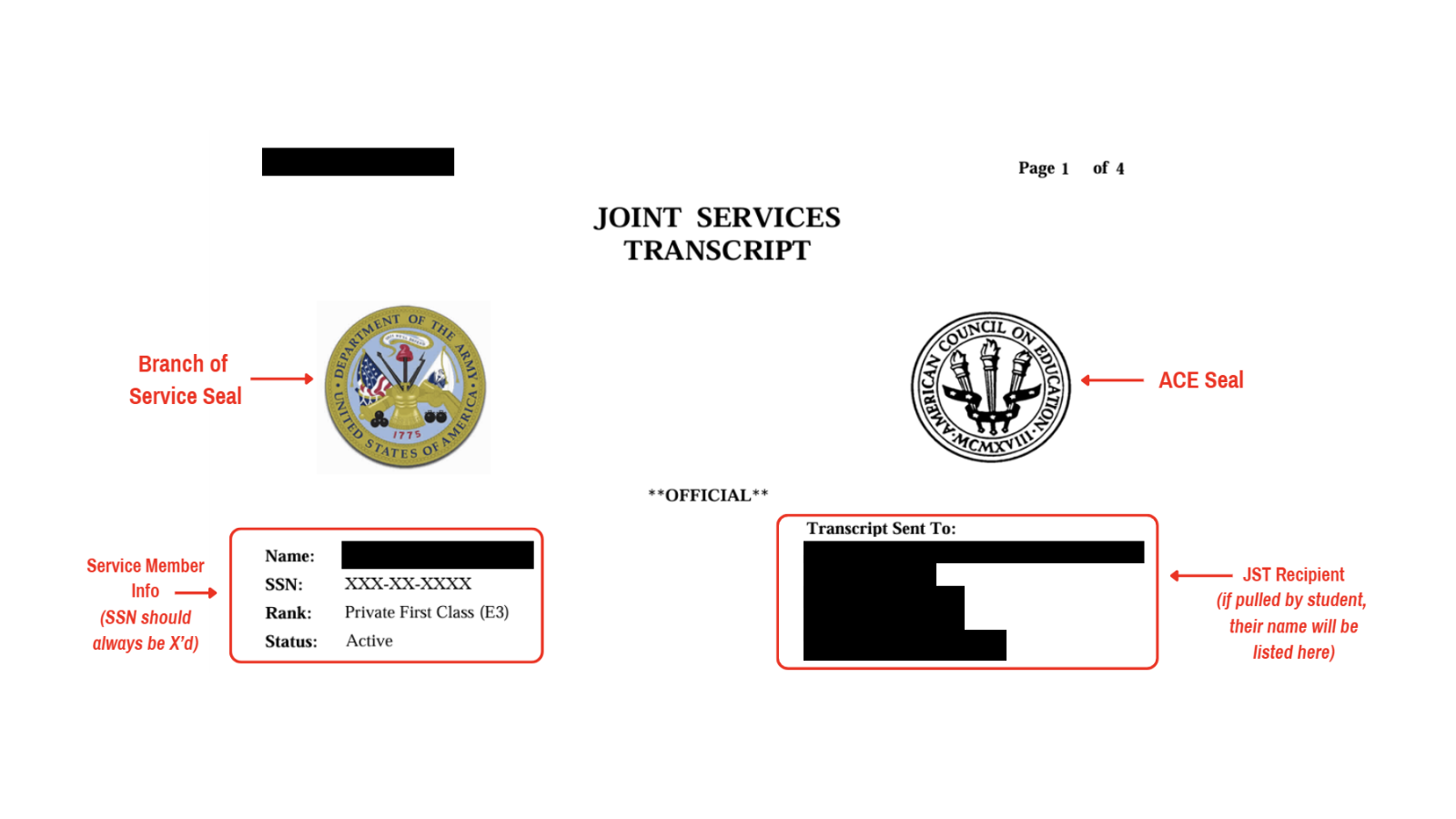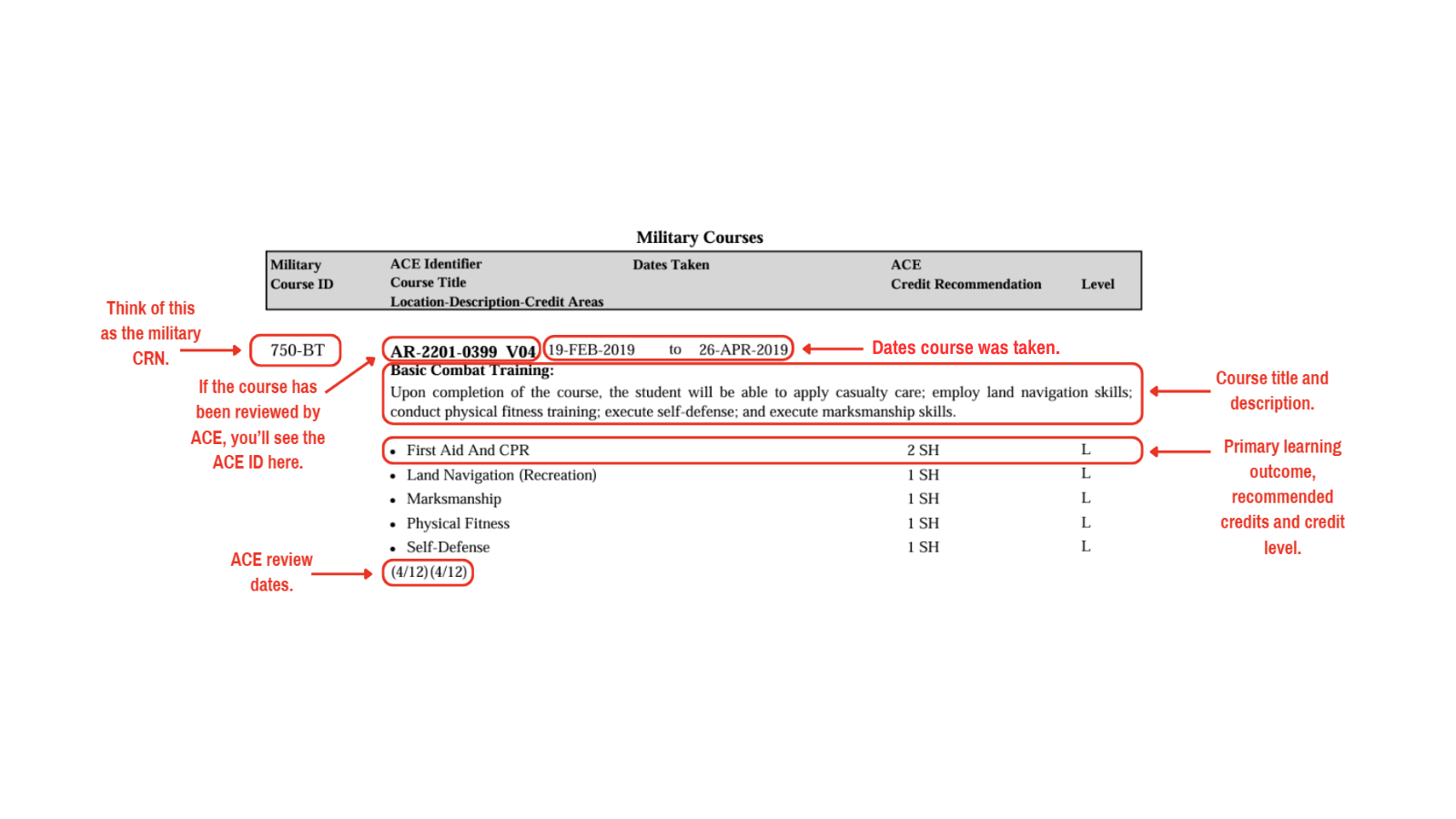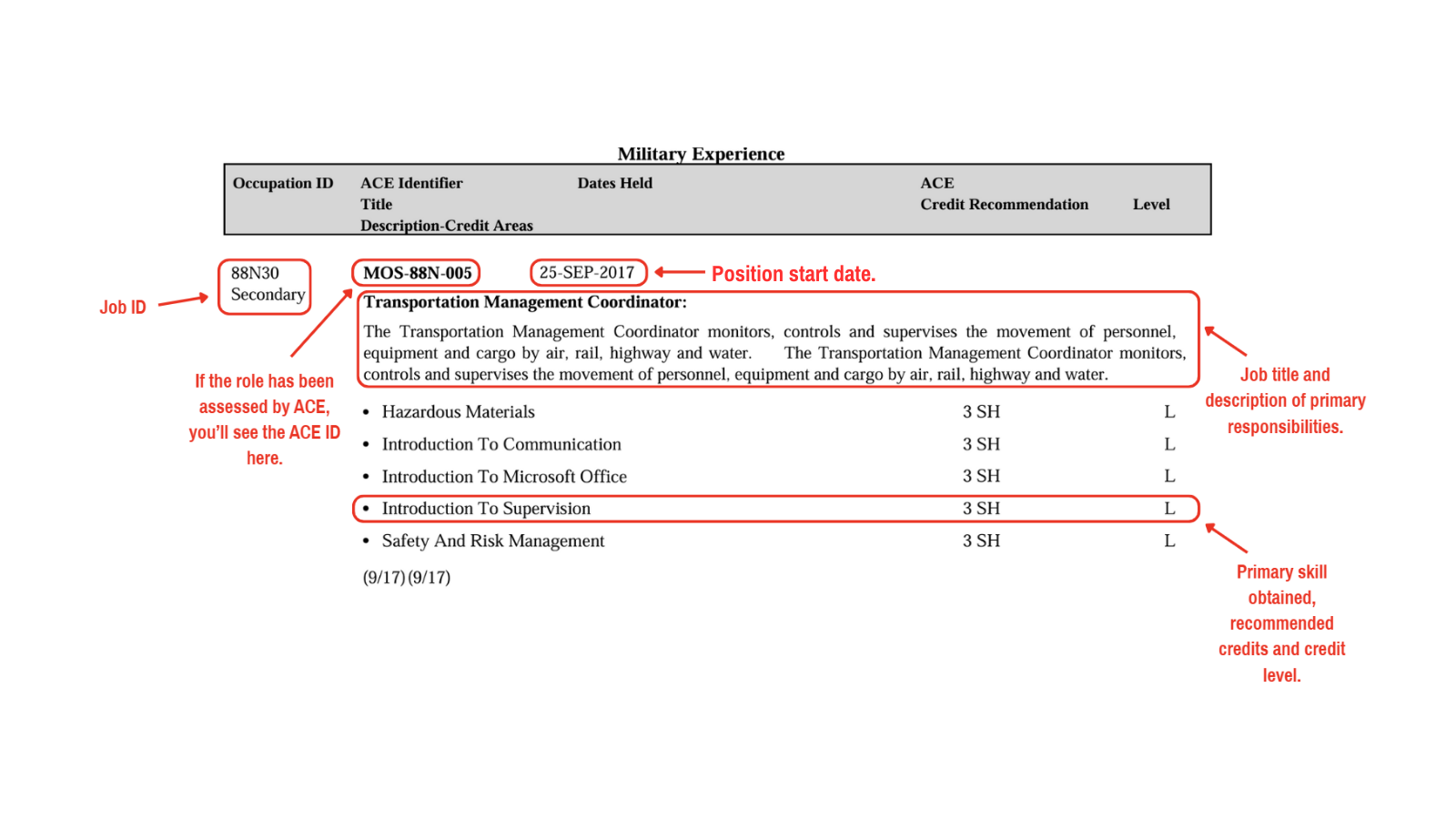Discipline Expert Guide
We know that implementing the Credit for Prior Learning (CPL) program at Cypress College is not only a collective effort, but an ever-evolving undertaking as our campus curriculum continues to grow.
Learn more about how to become a CPL Discipline Expert in your division using our comprehensive guide!
What is Credit for Prior Learning?
Credit for Prior Learning (CPL) is college credit awarded for college-level knowledge gained outside of the traditional classroom setting. This learning takes place in several ways, including:
- Military Training
- Workplace Training and Certification
- Apprenticeships & Internship Experience
- Noncredit, Adult Education, and Regional Occupation Programs
- Volunteer & Community Service Activities
- Self-Study & Professional Development
As a postsecondary institution, we have the ability to evaluate this learning and award
credit toward applicable degrees and certificates.
Consider this Scenario:
As a faculty member, you’ve excelled in your area of focus and earned degrees that help support your level of knowledge. However, you might not have obtained an actual teaching credential because it’s not required for your current role.
But what if you decided that at this stage in your career, you’d like to pursue one? Your years of experience in your field speak to your level of knowledge and you should get credit for what you know!
CPL allows you to leverage your experience creating lesson plans, facilitating exams, developing rubrics, and so on to save you time and money on your journey to that credential!
The CPL Map Overview
The Credit for Prior Learning (CPL) MAP Initiative is led by the California Community Colleges Chancellor’s Office. This initiative strengthens the connection between community colleges, UCs, CSUs, and local communities by expanding access to higher education for individuals who’ve gained college-level skills outside the traditional classroom.
Via the Mapping Articulated Pathways (MAP) interface, we’ll be joining other CCCs across the state in creating a home base for CPL courses. We’ll be using MAP as our hub for processing and showcasing CPL eligible courses at Cypress College, and their accepted CPL Types.
District and State CPL Policies
AP 4235 Credit for Prior Learning
Explains how CPL is obtained, student eligibility credentials for CPL, grading policy, transcription, and accepted CPL Types.
BP 4235 Credit for Prior Learning
A declaration by the Board of Trustees to adopt and publish regulations pertaining to Credit for Prior Learning in accordance with the provisions of Section 55050.
§ 55050. Credit for Prior Learning
From Barclays Official California Code of Regulations, stating that the governing board of each community college district shall adopt and publish policies pertaining to Credit for Prior Learning.
CPL Types Explained
Credit by Examination (CBE) and Standardized Exams have been a part of our academic framework for some time. Our goal is to expand opportunities by accepting additional types of CPL. You can see the full breakdown of each CPL Type below:
Credit by Examination (CBE)
Students prove their skills by passing a comprehensive assessment drafted and approved by Discipline Faculty.
Military Transcript
Veteran students can submit their Joint Service Transcripts (JSTs) or Air University Transcripts and have them reviewed for eligible credit recommendations based on their military training and experience as evaluated by the American Council on Education (ACE).
Work-Based Learning
Students prove skills by submitting industry recognized credentials that align with college level-courses in the form of industry certificates, licenses, and/or proof of apprenticeship or internship.
Student Portfolio
Students submit a comprehensive portfolio showcasing their college-level knowledge for division faculty review.
Standardized Exams
Students can submit their exam scores for Advanced Placement (AP), International Baccalaureate (IB), and College-Level Examination Program (CLEP).
Your Role in CPL
As a Discipline Expert, you will determine which CPL Types are applicable for your courses and develop the evaluation process that students will undergo for credit.
As we begin the process of building frameworks that best serve your division and our students, it’s important to remember:
CPL is directly linked to a course, not an instructor.
What does this mean?
- CPL assessments developed for courses in your division should be agreed upon by the division faculty as a whole.
- Rubrics and Exams created for courses in your division for CPL assessment will be created with longevity in mind and can be used by any discipline faculty administering CBE exams or reviewing credentials or portfolios for specific courses. Our ultimate goal as a campus is to create a streamlined process for CPL implementation across divisions that is straightforward in its implementation from student inquiry to credit transcription.
CPL Types with Existing Frameworks
There are two CPL Types that have pre-established frameworks that are accepted by CCC’s statewide: Standardized Exams and Military Credit.
This means that your division will not need to create or facilitate internal assessments for petitions submitted for these types of credit.
Standardized Exams
There are three Standardized Exams that are eligible for CPL credit:
- Advanced Placement (AP)
- International Baccalaureate (IB)
- College Level Examination Program (CLEP)
Advanced Placement (AP)
This exam is a college-level assessment created to test the skills of high school students taking advantage of the Advanced Placement Program.
Passing this exam could grant students CPL credits toward a corresponding introductory college course for qualifying scores, which would be a minimum score of 3 or higher for this exam.
International Baccalaureate (IB)
Individual IB exams correspond with the 6 core courses of the IB program: Studies in Language and Literature, Language Acquisition, Individuals and Societies, Sciences, Mathematics, and The Arts.
The exam for each course consists of an external assessment and an internal assessment.
- External Assessment: Two to three exam sections consisting of a combination of multiple-choice, short-answer, extended-response, and data- or case-analysis questions that are graded by independent examiners.
- Internal Assessment: Can include oral presentations or written work that are facilitated by the course teacher.
These exams are graded on a scale of 1-7, with college credit awarded for scores of 5 or higher.
Students pursuing an IB Diploma will need an average score of 4 on each exam to obtain the minimum passing requirement of 24 points.
College-Level Examination Program (CLEP)
CLEP exams are multiple-choice exams developed by college professors based on the learning outcomes for lower-level college courses. This allows students to obtain college credit for knowledge gained through independent study or experience.
A qualifying CLEP score for General Education credit at Cypress college is 50 or above on an exam.
Petitioning for Credit – Standardized Exams
The student’s Academic Counselor leads the CPL petition process for Standardized Exams.
If the scores align with the credit qualifications, they’ll inquire if the student would like to apply their scores and submit the petition on their behalf.
Military Credit
Training and experience obtained during military service is evaluated by the American Council on Education (ACE) to provide college credit recommendations for veteran students.
What is ACE?
The American Council on Education (ACE) is a collective of faculty evaluators that thoroughly review military curriculum and work experience and provide credit recommendations for corresponding coursework at colleges and universities.
These recommendations are presented to colleges and universities in a Department of Defense (DOD) approved transcript format known as Joint Services Transcripts (JSTs) that outline the military coursework and career of the veteran.
An ACE Faculty Evaluator…
- Is a faculty member that has been teaching college-level courses at a Council for Higher Education Accreditation (CHEA) accredited institution for at least 5 years
- Is a subject matter expert (SME) that is contracted and trained by ACE to evaluate military coursework and experience
- Reviews nontraditional learning as a member of an ACE created specialized team built based on their academic discipline alignment with the subject matter under review
What is Evaluated?
Military Training Courses
These are courses developed and taught under the authority of a Military Service Training Command created to train military service personnel that have individual assessments that correspond with the course’s learning objectives.
ACE Faculty Evaluators Examine:
- Curriculum Outlines
- Student Manuals and Materials
- Instructor Materials (ex. presentations, lesson plans, etc.)
- All Course Assessments
Military On-the-Job Learning
This refers to any relevant knowledge or skills obtained in a specific role while enlisted.
ACE Faculty Evaluators Examine:
- Typical duty day expectations for role pay grade or skill level
- Percentage of field work vs. office work
- The standardized nature of the training
- Technical tools and resources used in the role
- New technical skills expected to be obtained while in the role
- Software and applications used in the role
- Management responsibilities, level of supervision, and leadership as pertains to the role
Recommendations are based on…
- Course Content
- Depth and Breadth of Material
- Level of Difficulty
- Applicability to Postsecondary Programs
- Learning Outcomes
- Evaluative and Assessment Instruments
- Length of Instruction (typically in contact hours)
JSTs at a Glance
Keywords to Note:
- ACE ID: Courses and occupations reviewed by ACE have an identification number.
- Credit Recommendations (CR): ACE recommendations based on the individual’s learning through military experience, exam scores, and courses completed while in service.
- Semester Hours (SH): Course “Credits”, “Hours” and “Semester Hours (SH)” are used interchangeably to refer to semester units.
- ACE CR Levels: V – Vocational | L – Lower | U – Upper | G – Graduate



Petitioning for Credit – Military Credit
All incoming veteran students are prompted to approve or deny Joint Services Transcripts (JSTs) retrieval and can opt in to having them reviewed for CPL eligibility by a Veterans Resource Center Academic Counselor.
If they move forward with CPL review, applicable credit that aligns with the student’s pre-established Education Plan is discussed with the student prior to beginning the petition process.
If the student would like to move forward with pursuing credit, the VRC Counselor will submit the CPL petition on their behalf.
Modes of Assessment
You and your division faculty will be developing authentic forms of assessment to determine a student’s learning as it relates to the learning outcomes of your courses.
As you begin to create assessment frameworks, we encourage you to approach them in a way that instills confidence in the student’s skill level while maintaining a clear and concise pathway to success!
Summative Course Exam (Credit by Examination)
If a Summative Course Exam feels like the best fit for CPL assessment for your course, it’s important to note upfront that it is not the same as a final exam.
These exams are built to determine the student’s understanding of the course material independent of specific course activities.
The focus should be on the learning outcomes and overall course competencies and should not reference readings, assignments, or secondary sources outlined in the syllabus unless they are clearly referenced in the course learning outcomes.
That said, you’re highly encouraged to use your existing final exams as a guide to build this exam!
Assessment Tips:
- Consider administering these exams in a campus Testing Center.
- Collaborate with your discipline faculty to create the most effective assessment criteria and rubrics.
- Make sure that your exam policies are clearly articulated across your division.
Student-Created Portfolio
This form of assessment likely allows for the most freedom of expression from the student perspective but also requires the most extensive review by the evaluating Discipline Expert.
The easiest way for you and your faculty to guide submissions is by providing a clear breakdown of course outcomes and competencies to the student and allowing them to build their portfolio based on those criteria.
Portfolios typically consist of:
- Written essay component that gives a clear overview of their experience and process of learning
- Supporting documentation (i.e. resume, certificates, work samples) that provide verifiable proof of learning
Assessment Tips:
- Consider providing a simplified course syllabus, examples, or rubrics as points of reference for the petitioning student.
- The nature of learning matters just as much as the amount of overall experience; this informs the transferability of the skills to more than one setting!
- Don’t be afraid to pair this assessment with an Oral Interview as it could help solidify your faith in the student’s skills.
Skills Demonstration
Likely the best option for CTE programs, this mode of assessment allows the petitioning student to do a practical demonstration of their skills in front of Discipline Experts.
As a Discipline Expert, it will be your job to observe the demonstration and assess the student’s performance based on course learning outcomes. You’ll also be responsible for:
- Setting up the demonstration
- Providing the student with clear expectations for the exercise
- Recording the results of the assessment as aligns with the institution’s quality assurance processes
Assessment Tips:
- Align the exercise(s) required for the demonstration with the specific course outcomes outlined in the syllabus.
- Create rubrics and grading scales that are comprehensive in their examination of the student’s skills.
- This mode of assessment might also be a good candidate for pairing with an Oral Interview or Portfolio review!
Oral Interview
This assessment mode may seem the most approachable to the student and the assessor(s), but it bears the same weight as any of the other modes in regards to awarding credit.
The Oral Interview can be used in a couple of ways to evaluate learning:
- On its own, it can be approached as a traditional interview with Discipline Experts asking questions tailored to reflect the learning outcomes of the course.
- Paired with another assessment, it could be used as a way to gauge the student’s understanding of the material, perhaps even prior to pursuing the full petition process.
More than anything, it’s important to approach it as a conversation among professionals designed to provide clarity of expertise as it pertains to the learning outcomes of the course. We want to see what the student knows, not what they don’t know.
Assessment Tips:
- Both in-person and virtual interviews are applicable for evaluation.
- Multiple assessors are ideal for a balanced approach to evaluation.
- Of all other modes, this one lends itself most to being paired with other assessments. However, it can still be an effective standalone assessment.
Pros and Cons of Each Mode Assessment
Not every assessment mode will be a good fit for every course or student. You’ll use your extensive knowledge of the course material to align the learning outcomes with non-traditional proof of knowledge.
Consider the following Pros & Cons of each learning mode as you build your assessments:
Summative Course Exam
Pros:
- Tailored to institutional course objectives and learning outcomes
- Results obtained easily and quickly
- Can used to develop assessment criteria built to last
Cons:
A lot of work and effort upfront to develop the exam
Requires coordination across the academic division
- Could potentially hinder curriculum changes due to exam revisions
Student-Created Portfolio
Pros:
- Provides holistic look into student’s experience to show ability and understanding of material
- Opportunities for curriculum review and development in tandem with portfolio assessment
- Greater faculty control over assessment standards and results
Cons:
- Time consuming for both the student and the assessor(s)
- Inconsistency across submitted materials
- Creation of valid and reliable assessment standards presents a major challenge
Skills Demonstration & Oral Interviews
Pros:
- Allows for a student’s authentic experience to be proven in real time
- Able to be assessed via multiple perspectives through use of multiple rates or evaluators
- Faculty has the freedom to dig deeper into a student’s experience with follow-up questions or by prompting explanation of workflow
Cons:
Time consuming and labor intensive, leading to added costs for materials
- Requires additional, specified training for assessors
- Assessments have potential to be rated more subjectively
The 3 Keys to Effective Assessment

CPL is awarded for clear evidence of applicable learning, not for experience or time spent overall.

Assessment creation requires inclusive deliberation across the full academic division.

Assessments are regularly evaluated and revised to reflect evolving course outcomes.
The CPL Petition Process
Students may initiate conversation about CPL but cannot submit petitions on their own. To pursue credit, they must consult the Course Instructor, a CPL Co-Coordinator, or their Academic Counselor, who will review their experience and submit the petition on their behalf if applicable.
The petition process unfolds as follows:
- CPL Opportunity Identified & Petition Submitted
- CPL Materials Assessed by Discipline Expert(s)
- Approved Petition sent to Admissions and Records for transcription
Congratulations! You are well on your way to becoming a CPL expert and advocate at Cypress College.
As you move forward, keep in mind that our institutional responsibilities to Cypress College CPL students include:
- Adding CPL to the education planning process
Offering credit for courses with similar content
- Providing the opportunity to accept, deny, or appeal credit
- Reviewing the effects of CPL on other institutional resources including transfer support and financial aid
Additional Reference Links
- American Council on Education
- ACE Military Guide
- AP Central
- California Community Colleges CPL Resource Page
- CLEP
- Council for Adult and Experiential Learning (CAEL)
- Cypress College Catalog – External Exam Credit
- Cypress College CPL
- Cypress College CPL Course List
- International Baccalaureate
- Joint Services Transcript (JST) Request
- Mapping Articulated Pathways (MAP)
- Palomar College CPL Resource Page
